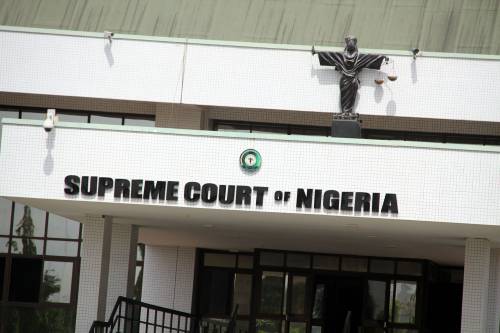By Abbanobi-Eku Onyekachi
Barr. Izunna Eke has decried what he described as “judicial lawlessness in the Nigeria”, stressing that the dimension it has assumed is a threat to the nation’s democracy.
Addressing journalists in Abuja, the legal practitioner claimed that “the Nigerian judiciary has been marred by numerous cases of lawlessness, undermining the trust of citizens in the system”.
He cited the case of two brothers, Kingsley Ogbonna and Monday Ogbonna, who, according to him, have been in the prison custody since March, 2024 despite a notice of discontinuance of the terrorism charges filed against them.
He claimed that in spite of dropping the charges filed against the two brothers, the Federal High Court sitting in Abuja, has refused to set them free from detention in prison.
He maintained that the incident has highlights the need for urgent reforms to address judicial lawlessness in Nigeria.
To resolve the ugly trend, Barr. Eke said experts recommendations that prosecutorial power be removed from the police, so as to focus solely on investigating crimes, while a separate prosecution agency determines whether to prosecute or not, have become imperative.
He also calls for the establishment of clear guidelines for the National Judicial Council (NJC) for judges, with consequences for non-compliance; ensuring fair and independent appointments.
He further argued that the appointment of judges should be based purely on merit, with transparent selection criteria and public access to information on the decision-making process.
He also called for the promotion of transparency and accountability, for the judiciary, which, according to him, should full embrace digitization, with electronic judicial platforms for processing cases.
He further called for the strengthening of sentencing guidelines for judges, thus reducing discretion which have provided the opportunities for corruption.
He added that there should be continuous improving of the remuneration and training for judges and court staff, so as to reduce the temptation of corruption and improve performance.



